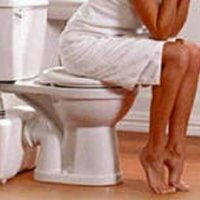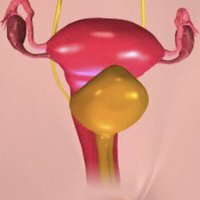Antibacterial therapy of cystitis

Frequent urge to urinate, literally every 10-15 minutes, unbearable pain in the abdomen, fever, weakness, malaise. .. This is not the whole list of symptoms of inflammation of the bladder mucosa - cystitis. Treatment of cystitis is individual. What methods will antibiotic therapy of cystitis be performed depends on the severity and course of the disease. Distinguish primary, secondary, acute, chronic, infectious and non-infectious cystitis. Inflammation of the bladder can be a complication of another disease in the genitourinary sphere, and also arise in an absolutely healthy body.
The causes of cystitis can be viruses, infections, foreign bodies and stones, oncological and endocrine diseases, as well as menopause. Like other urological diseases, in women, inflammation of the bladder often complicates sexually transmitted diseases. The necessary antibacterial drugs against cystitis can be selected only after examination and to identify the cause of inflammation.
The drug therapy for cystitis depends on the form of the disease and the causes that caused it.
In case of acute cystitis, in addition to drinking regimen and diet, an antibacterial preparation is selected to fight the microbes that caused inflammation, and drugs for eliminating the spasm of the musculature of the bladder, including phyto-drugs. Reception of antibiotics is prescribed on the basis of knowledge about causative agents of cystitis in a specific area( empirical treatment).
If bacteriological analysis of urine was performed before the beginning of antibacterial treatment, then after receiving the results, antibiotic therapy( especially in case of ineffective empirical treatment) can be adjusted taking into account the sensitivity of cystitis pathogens to antibacterial drugs. As a rule, the result of empirical therapy is the elimination of the symptoms of the disease already on the 2nd-3rd day of treatment. To prevent relapse of cystitis, it is necessary to go through the entire course of antibacterial treatment, appointed by the attending physician( from 5 days to a week, subject to the normalization of urine analysis).
Therapy for chronic cystitis should begin with the elimination of the causes of the disease( diverticulum of the bladder, stone in the bladder, stricture of the urethra, prostate adenoma and others).With this form of cystitis, antibiotic therapy is based on the result of microbiological analysis of urine. Widely used and local treatment, namely instillation - the introduction into the cavity of the bladder drugs in liquid form. This procedure should only be carried out by an expert. The course of treatment is from 8 to 10 daily procedures. The choice of drugs and the number of procedures for the course of therapy depends on the severity of the disease and on the condition of the bladder mucosa. Sometimes patients with chronic form of cystitis are given a course of taking immunomodulators in order to restore the activity of the immune system.
If complications such as sclerosis of the bladder neck, vesicoureteral reflux, interstitial cystitis with bladder contraction, distal urinary canal stenosis are observed in chronic form of the disease, then conservative treatment is ineffective, and surgical intervention is necessary when choosing the methods of disease therapy.



